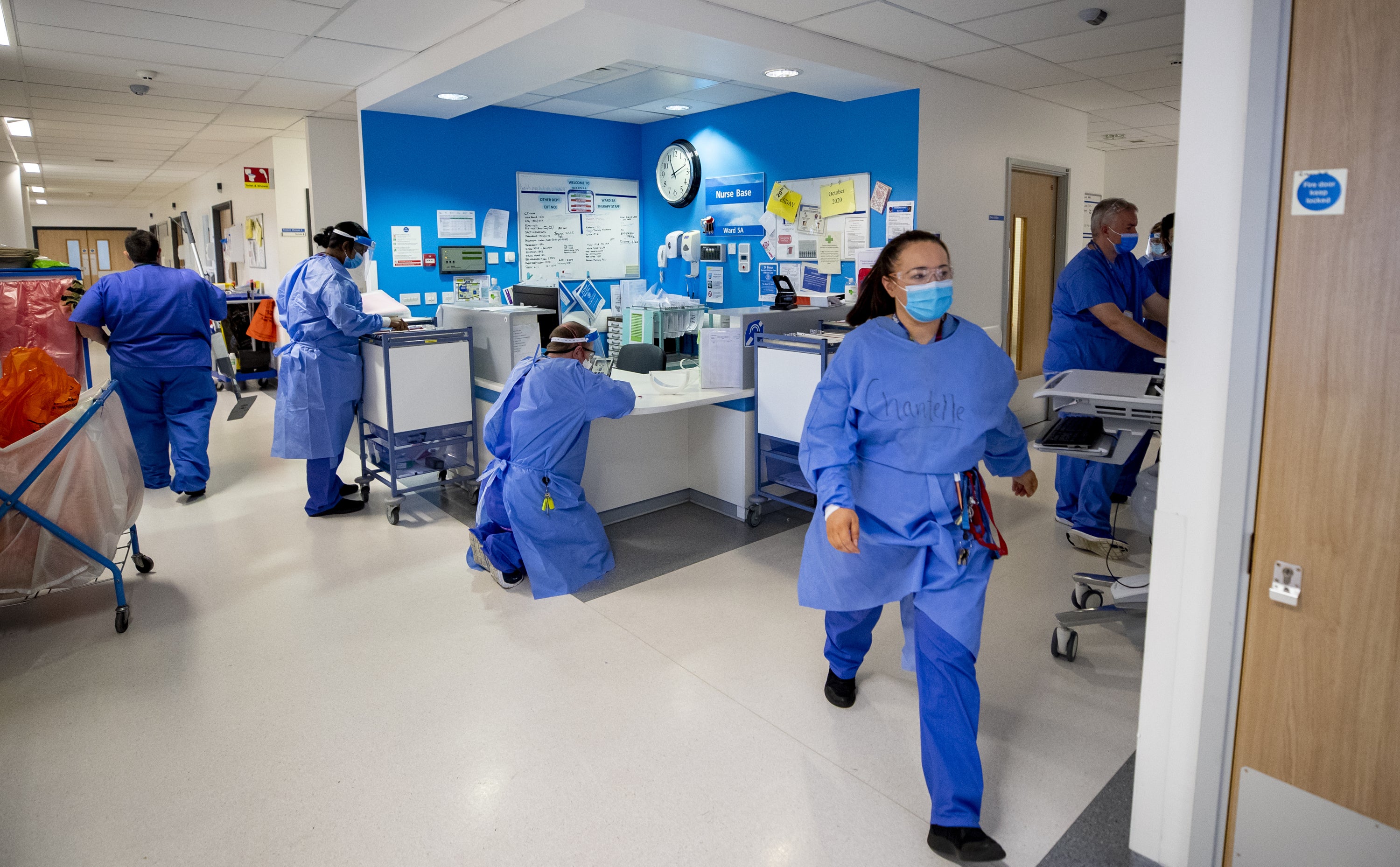Covid-19 hospital admissions among older age groups continue to rise
The growing prevalence of the virus could cause fresh disruption to public services.

Your support helps us to tell the story
From reproductive rights to climate change to Big Tech, The Independent is on the ground when the story is developing. Whether it's investigating the financials of Elon Musk's pro-Trump PAC or producing our latest documentary, 'The A Word', which shines a light on the American women fighting for reproductive rights, we know how important it is to parse out the facts from the messaging.
At such a critical moment in US history, we need reporters on the ground. Your donation allows us to keep sending journalists to speak to both sides of the story.
The Independent is trusted by Americans across the entire political spectrum. And unlike many other quality news outlets, we choose not to lock Americans out of our reporting and analysis with paywalls. We believe quality journalism should be available to everyone, paid for by those who can afford it.
Your support makes all the difference.Covid-19 hospital admissions among older age groups in England are continuing to rise, while one in six over-75s have not received any dose of vaccine in the past six months, new figures show.
Patient levels are still some way from the peak reached during the wave of infections earlier this year and the number of people seriously ill remains low.
But the jump in admissions is another signal of how the virus is once again becoming more prevalent, with potential to add further pressure on hospital staff and cause wider disruption across the country.
The rate of hospital admissions of people with Covid-19 aged 85 and over stood at 97.5 per 100,000 last week, up from 67.6 the previous week, according to the UK Health Security Agency (UKHSA).
Admissions in this age group peaked at 212.1 per 100,000 in the spring, during the surge in infections caused by the Omicron BA.2 variant.
The rate for people aged 75 to 84 has climbed from 32.1 to 41.8.
Admissions among other groups are much lower, though the total rate for all ages stands at 11.1 per 100,000, the highest since mid-April.
The current wave of infections is being driven by the newer variants BA.4 and BA.5, which now make up more than half of all new Covid-19 cases in England.
The BA.5 variant is thought to be growing approximately 35% faster than BA.2, while BA.4 is growing 19% faster, meaning it is likely that BA.5 will soon become the dominant Covid-19 variant in the country.
There is “currently no evidence” that the two variants cause more serious illness than previous variants, the UKHSA said.
The growing prevalence of the virus is likely to cause fresh disruption to public services, however.
The two waves of infections earlier in the year, caused respectively by the original Omicron variant and Omicron BA.2, saw a spike in staff absences in key sectors such as transport, health and social care.
Take-up of Covid-19 vaccine could be an additional factor in the latest wave.
Around one in six (16.6%) of people aged 75 and over have not received a dose within the past six months, putting them more at risk of severe disease, the UKHSA said.
All over-75s in the UK have been offered a “spring booster”, available at least three months after their most recent jab, to ensure they continue to receive the maximum possible protection.
The number of suspected outbreaks of Covid-19 last week in all settings across the UK was 467, the highest since mid-April, in another sign that the virus is spreading.
There were 334 outbreaks detected in care homes, the fourth successive weekly increase, with 211 outbreaks having a least one linked case that tested positive for Covid-19.
The total number of people in hospital who have tested positive for Covid-19 is on a clear upwards trend in most parts of the country.
Some 8,587 patients in England had Covid-19 on June 29, up 39% on the previous week, Government figures show.
It is the highest total for nearly two months but is still some way below the peak of 16,600 patients during the Omicron BA.2 wave.
In Wales, 510 hospital patients with Covid-19 were recorded on June 27, up 44% from the previous week.
Scotland has seen patients jump 34% week-on-week, reaching 1,298 on June 26.
The trend in Northern Ireland is uncertain, with numbers rising in early June before levelling off in recent days between 320 and 340.
Around six in 10 hospital patients who test positive for Covid-19 are being treated primarily for something else, rather than the virus.
But they will need to be kept isolated from those patients who do not have Covid, putting extra pressure on hospital staff.